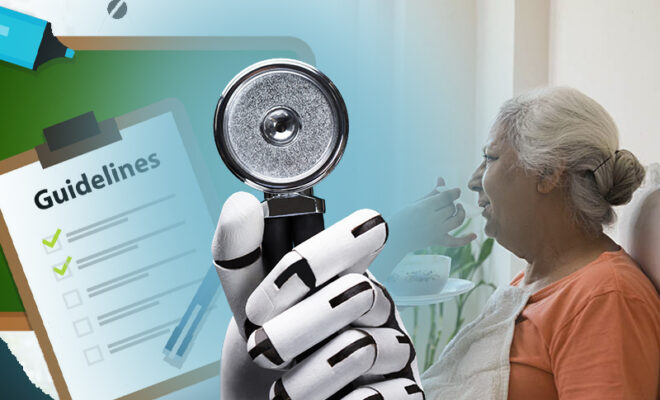ICMR Releases First Ethical Guidelines For AI In Healthcare

The goals of the guidelines are to create an ethical foundation for the creation of AI-based solutions that will be advantageous to all parties involved.
The Department of Health Research and the ICMR’s Artificial Intelligence Division have published the country’s first ethical guidelines for the application of artificial intelligence in biological research and healthcare.
The objectives of the recommendations are to establish a moral base for the creation of AI-based products that will benefit all parties.
In accordance with a document produced by the two organizations, AI in health heavily relies on data collected from participants, which presents concerns regarding potential biases, data processing, interpretation, autonomy, risk minimization, professional competence, data sharing, and confidentiality.
Thus, it is imperative to develop an ethical framework that addresses challenges related to AI for biomedical research and healthcare, according to the principles.
India is using AI technology in healthcare more and more. Dr. Rajiv Behl, director general of the ICMR, asserts that bias and discrimination are just a few of the many potential ethical issues that AI as a data-driven technology may provide.
Other issues include algorithmic transparency and explainability.
The DHR-ICMR AI Cell has determined that these guiding ethical standards for technologies based on machine learning and AI are required.
All stakeholders, including innovators, developers, patients, technologists, researchers, healthcare professionals, ethics committees, sponsors, and funding agencies involved in research related to AI in biomedical research and healthcare, will benefit from these guidelines, he said. “These guidelines will provide the ethical framework for the development of AI-based tools.”
According to Dr. N K Arora, the executive director of NTAGI, these principles are intended to establish an ethical framework that will enable the creation, use, and adoption of AI-based solutions in biomedical research and healthcare delivery.
The recommendations are open to developers, technicians, researchers, doctors, ethics committees, institutions, sponsors, and funding agencies. Any parties interested in undertaking research on artificial intelligence in healthcare are encouraged to read them.
The guidelines for using AI-based tools in biomedical research and healthcare are broken down into sections that cover ethical considerations for AI in healthcare, guiding principles for stakeholders, the ethics review process, governance of AI in healthcare and research, and the informed consent procedure that involves using human participants and their data.
Dr. Arora claims that after lengthy discussions with subject matter experts, researchers, and ethicists, the guideline was created.
In domains including diagnosis and screening, treatments, preventative care, clinical decision-making, public health surveillance, complicated data processing, and illness outcome prediction, the use of AI in healthcare has the potential to offer solutions to significant issues.
The text states that this list will probably grow in the future.
According to the statement, these guidelines are not intended to stifle innovation or promote any disease-specific diagnostic or therapeutic approach.
Instead, they are meant to direct the efficient yet secure development, deployment, and adoption of AI-based technologies in biomedical research and healthcare delivery.
Experts and ethics committees will use these criteria to judge research proposals that incorporate AI-based tools and technology.
Also Read:- Fake Donald Trump arrest photos surface online. How to identify an AI-generated image



